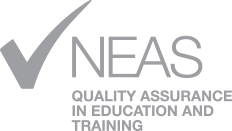
Transformational Technology in Thai Education
Conference 21.18
Presented by
Dr Alexander Nanni
Associate Dean for International Affairs, Mahidol University
Transformation is difficult. The education system of Thailand is in transition, and individual universities are undergoing their own organizational changes in response to an evolving economic and demographic landscape. Students embarking on their educational journeys face daunting uncertainty, particularly regarding the acquisition of marketable skills and eventual employment; however, these same students also have access to unprecedented opportunities. In this highly unsettled context, Mezirow’s (1991) framework of transformative learning is a valuable lens through which to understand the role of disorientation, dissatisfaction, and experimentation in effecting meaningful change. This presentation explores the interplay between the reform of higher education in Thailand, the internationalization of a specific government university, and the transformative journeys of students enrolled in an English-medium liberal arts program within the university, emphasizing the ways in which managing crises can enhance sustainability. The students’ experiences are discussed in relation to transformative learning theory. For teachers aiming to equip students for their journeys, understanding the transformative potential of adversity is a key to fostering student success.
Presenter Bio
Alexander Nanni is the Associate Dean for International Affairs at Mahidol University International College (MUIC), which is located in Salaya, Thailand. He began teaching English in Thailand in 2005. From 2012 to 2018, he was the director of the Preparation Center for Languages and Mathematics at MUIC. During this time, he and his team applied for quality assurance through NEAS, becoming the first program in Thailand to do so. Alexander holds an M.Ed. in Teaching English as a Second Language from Rhode Island College and an Ed.D. in Curriculum, Teaching, Learning, and Leadership from Northeastern University in Boston.
CPD points: 1
